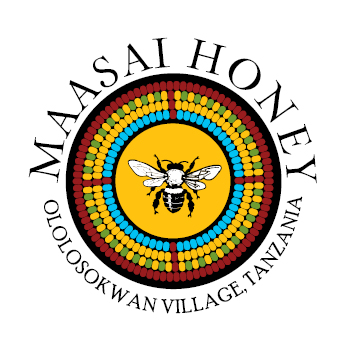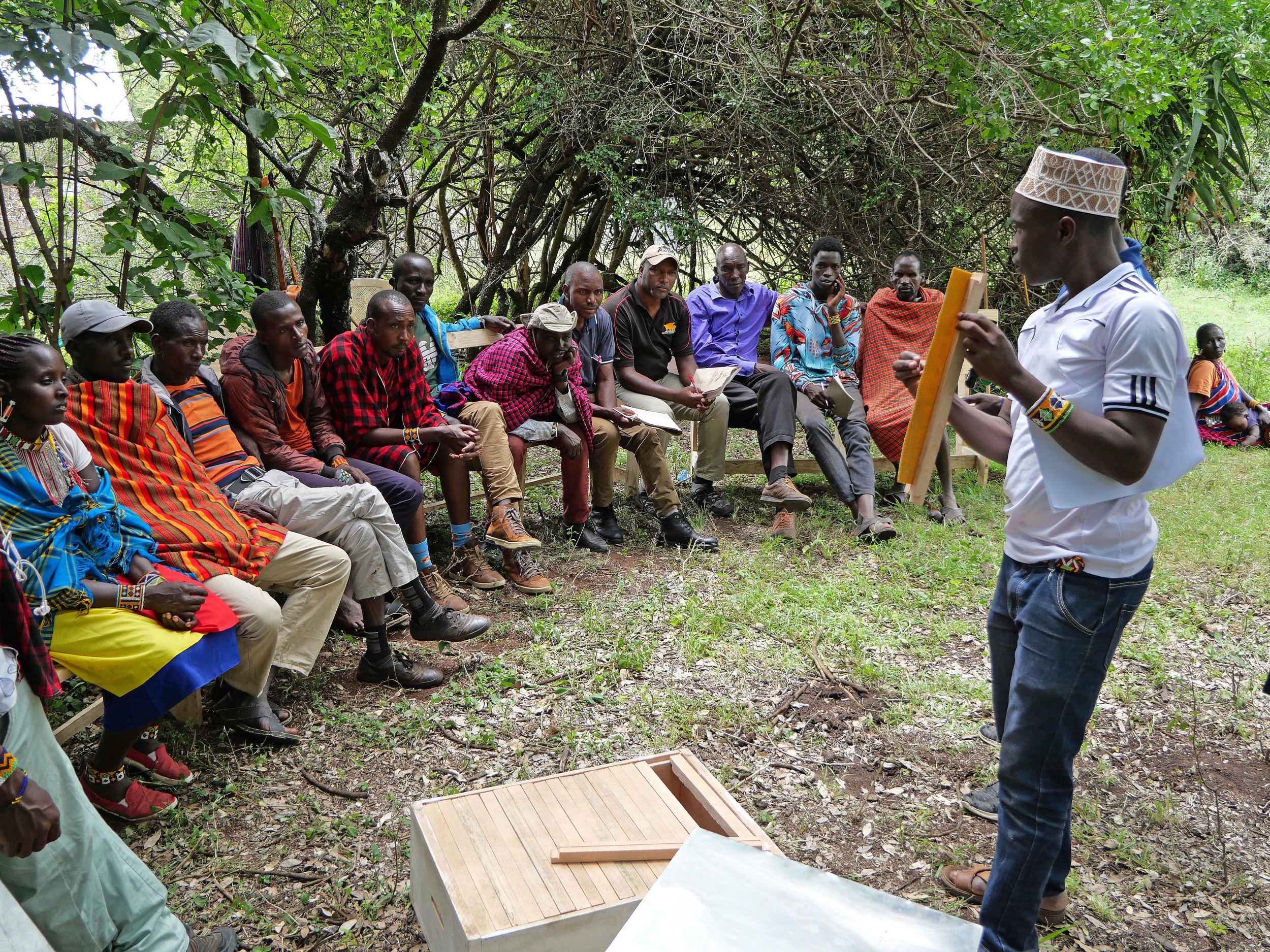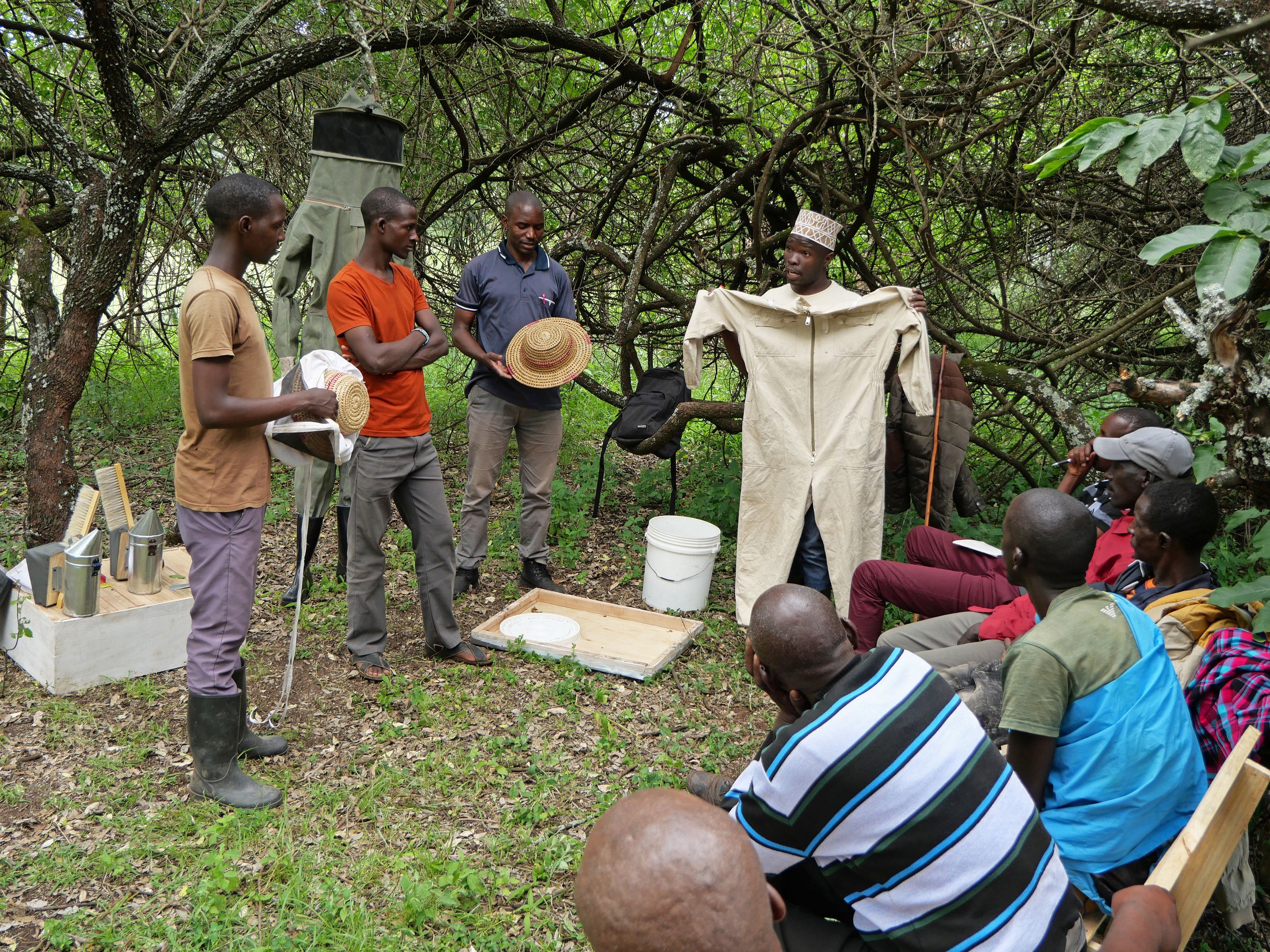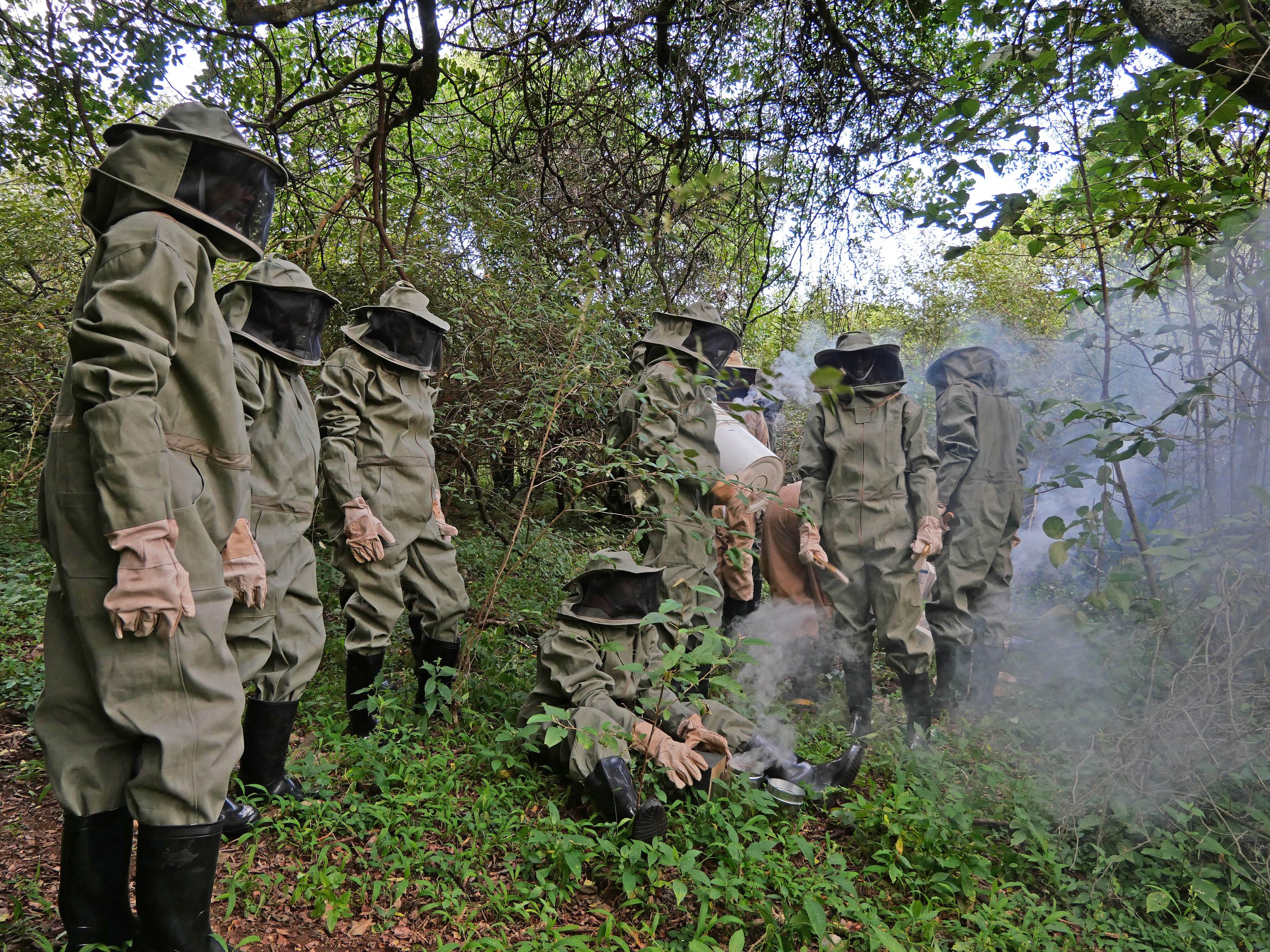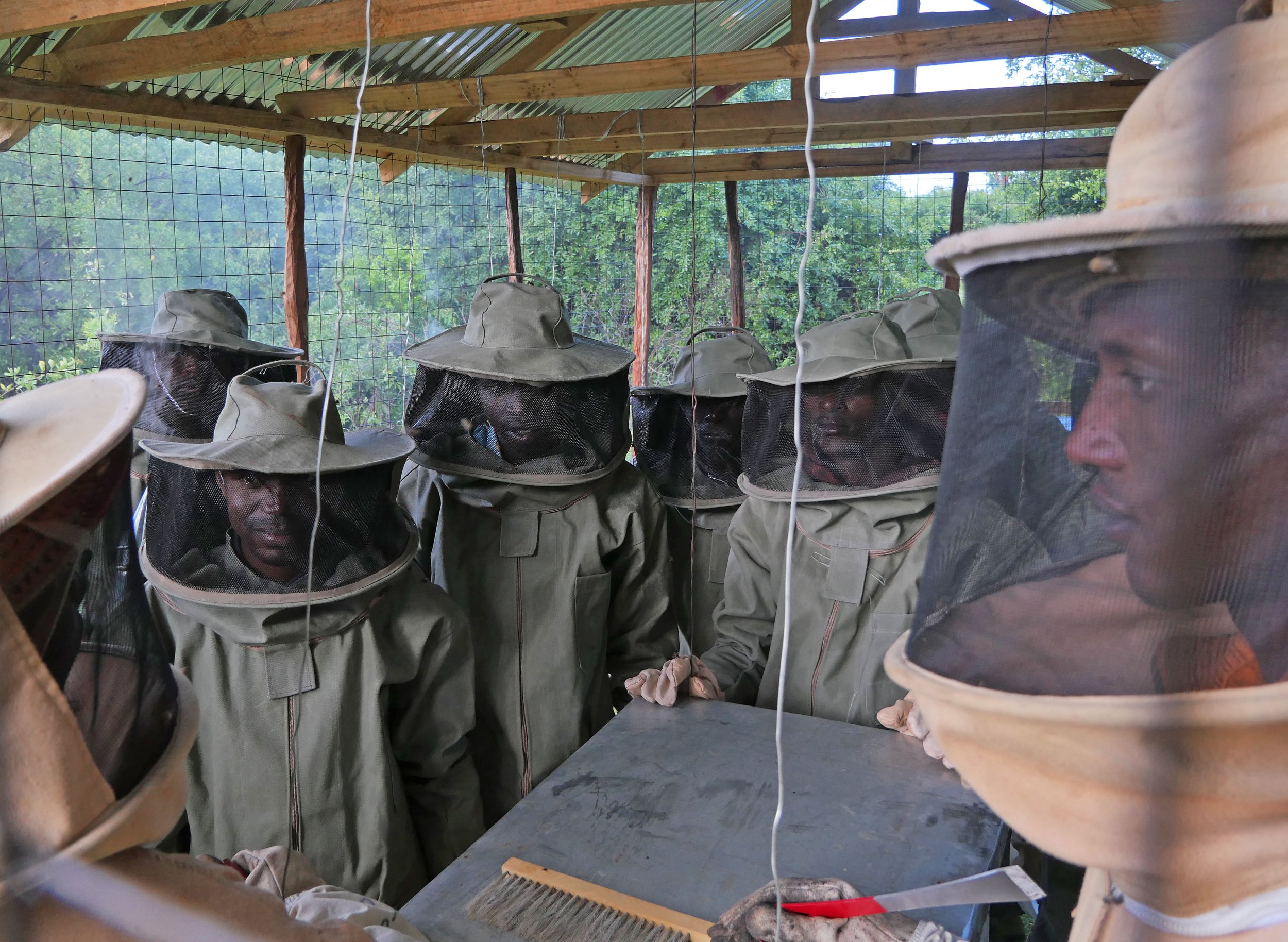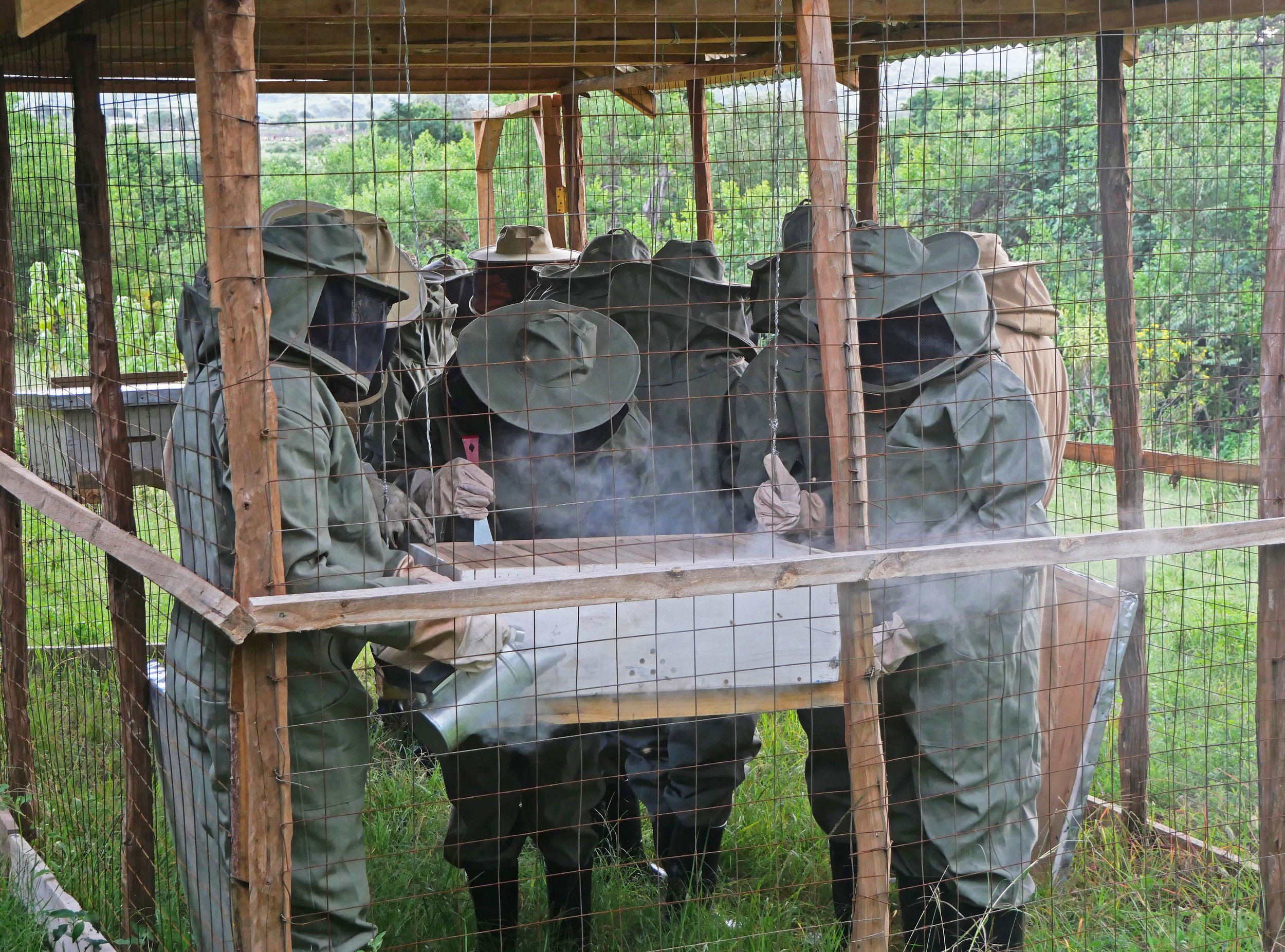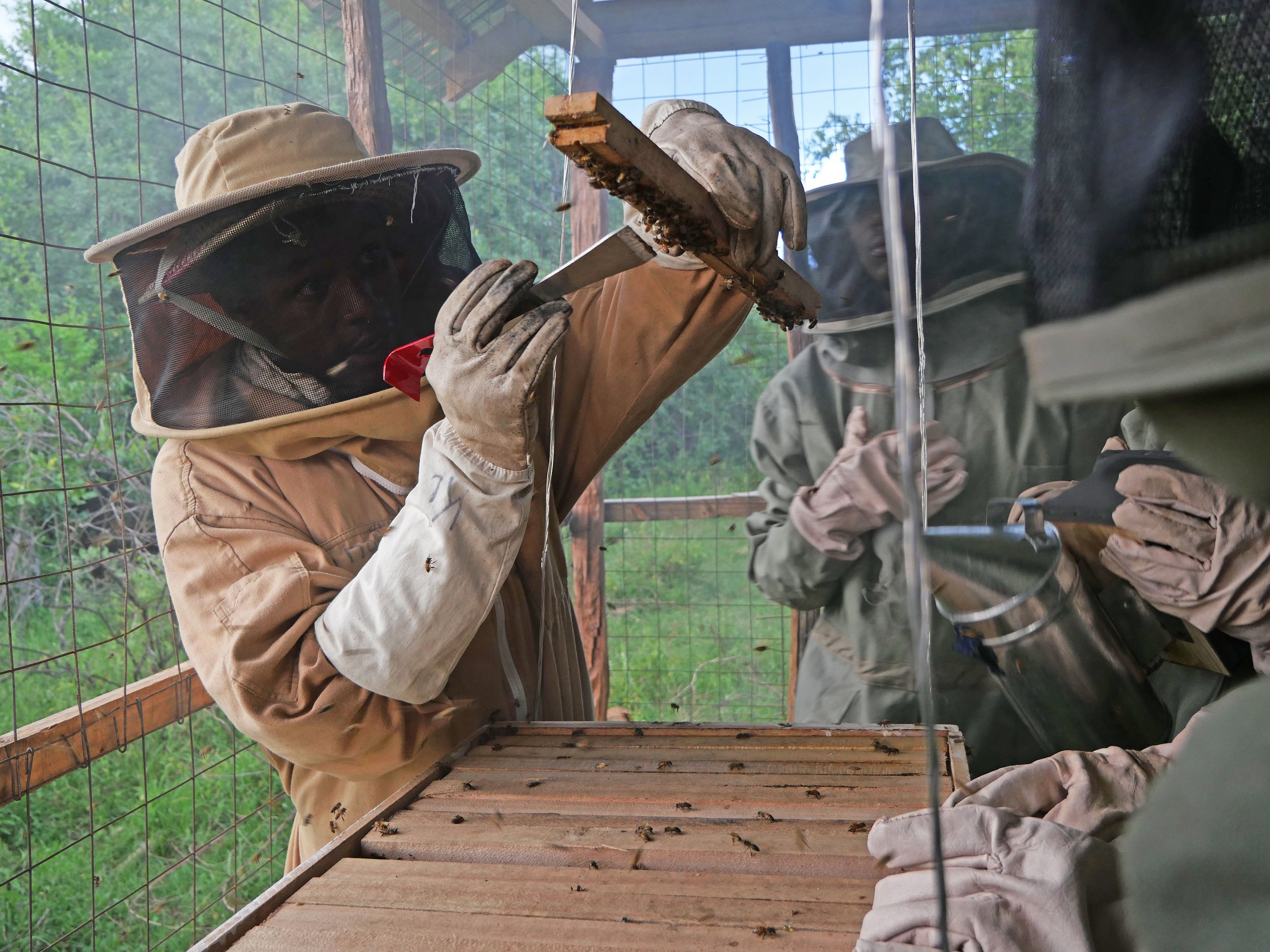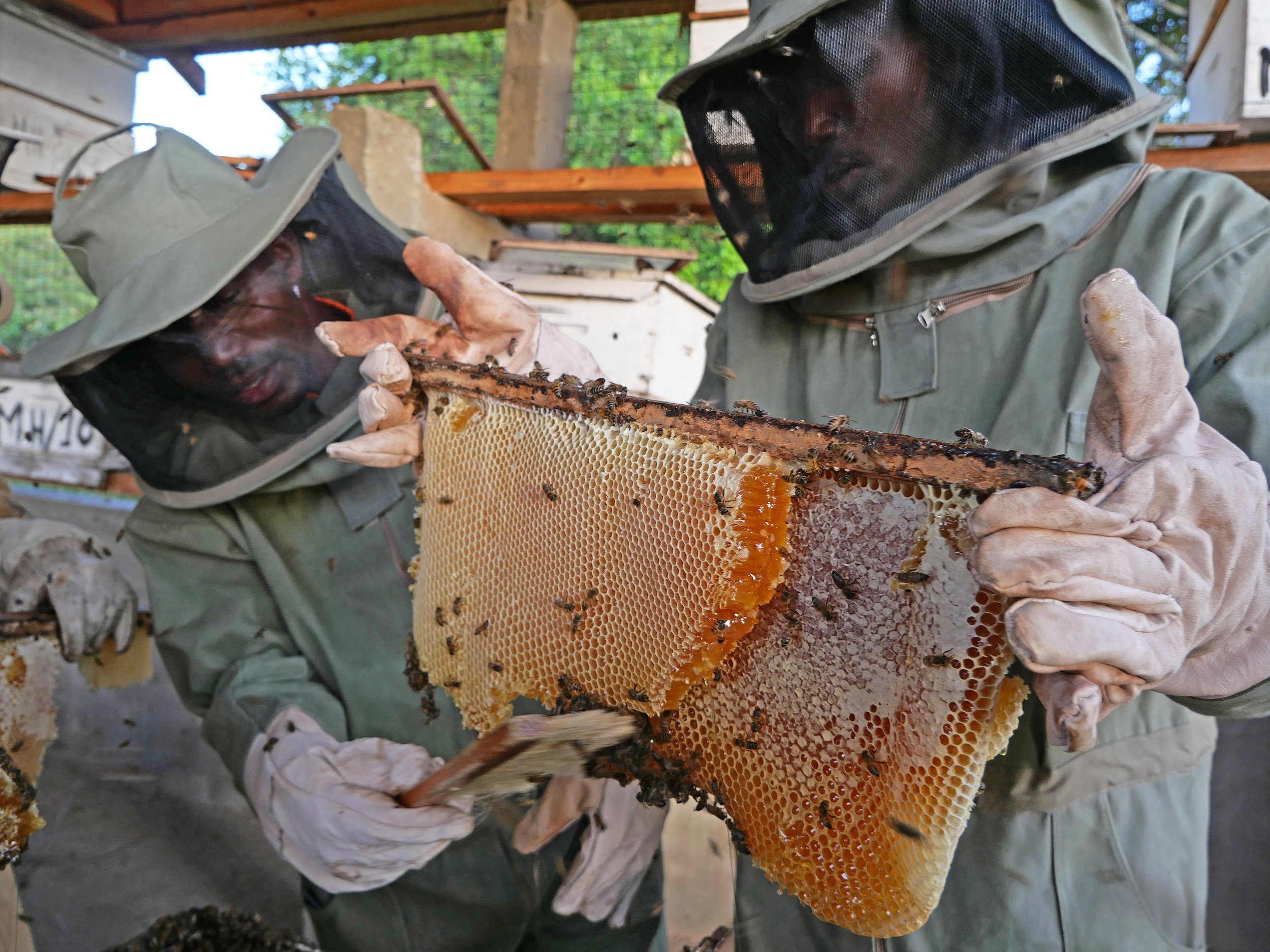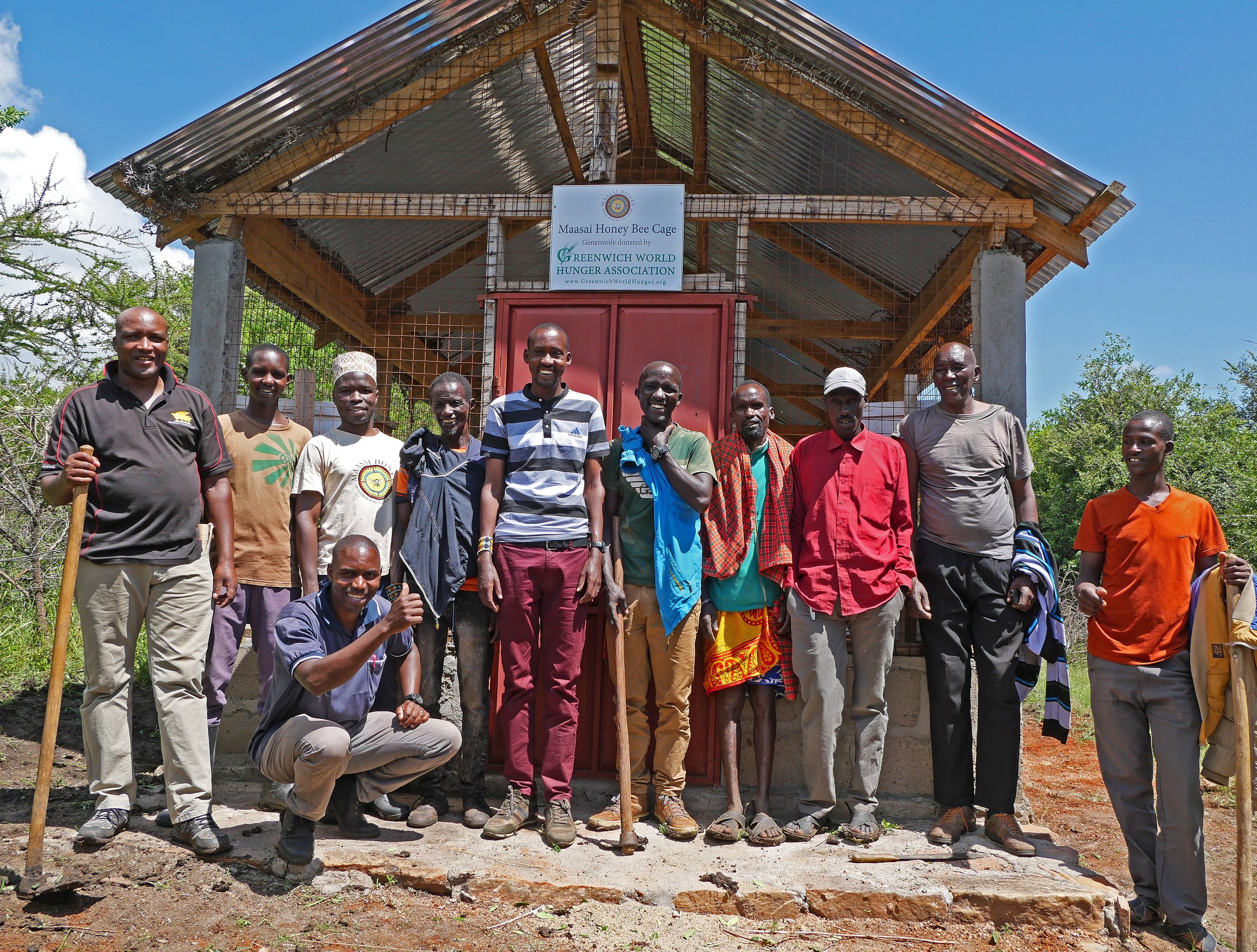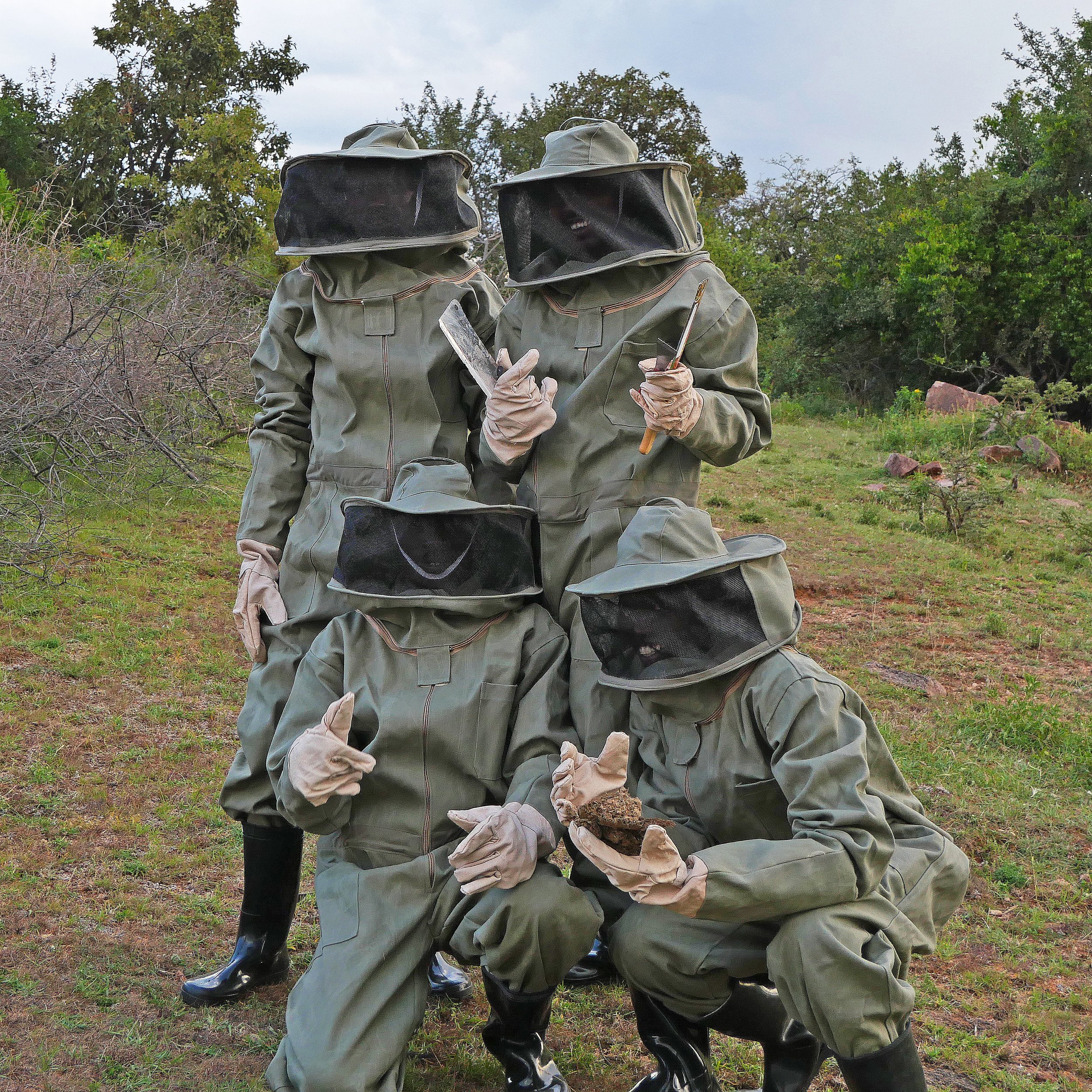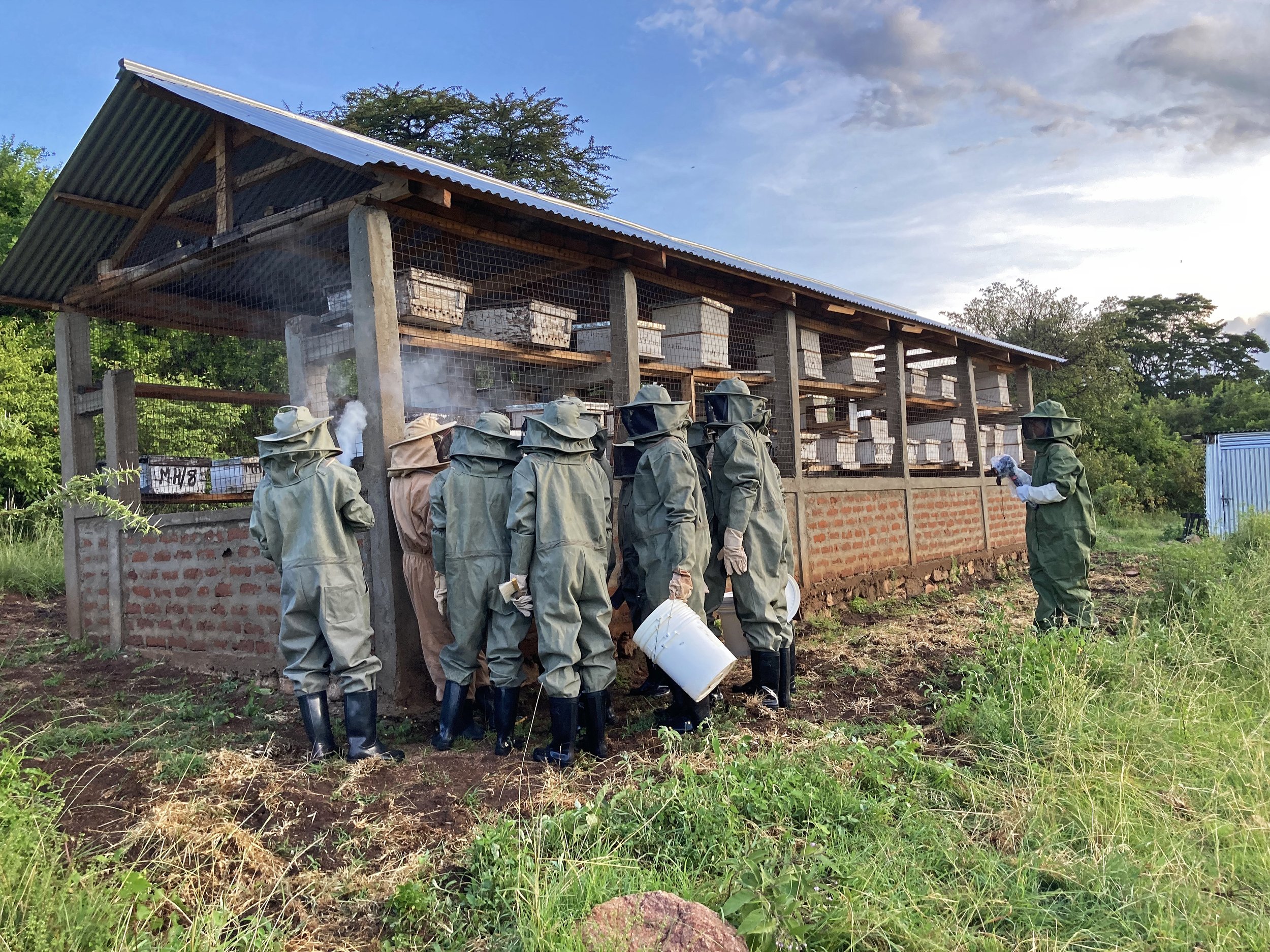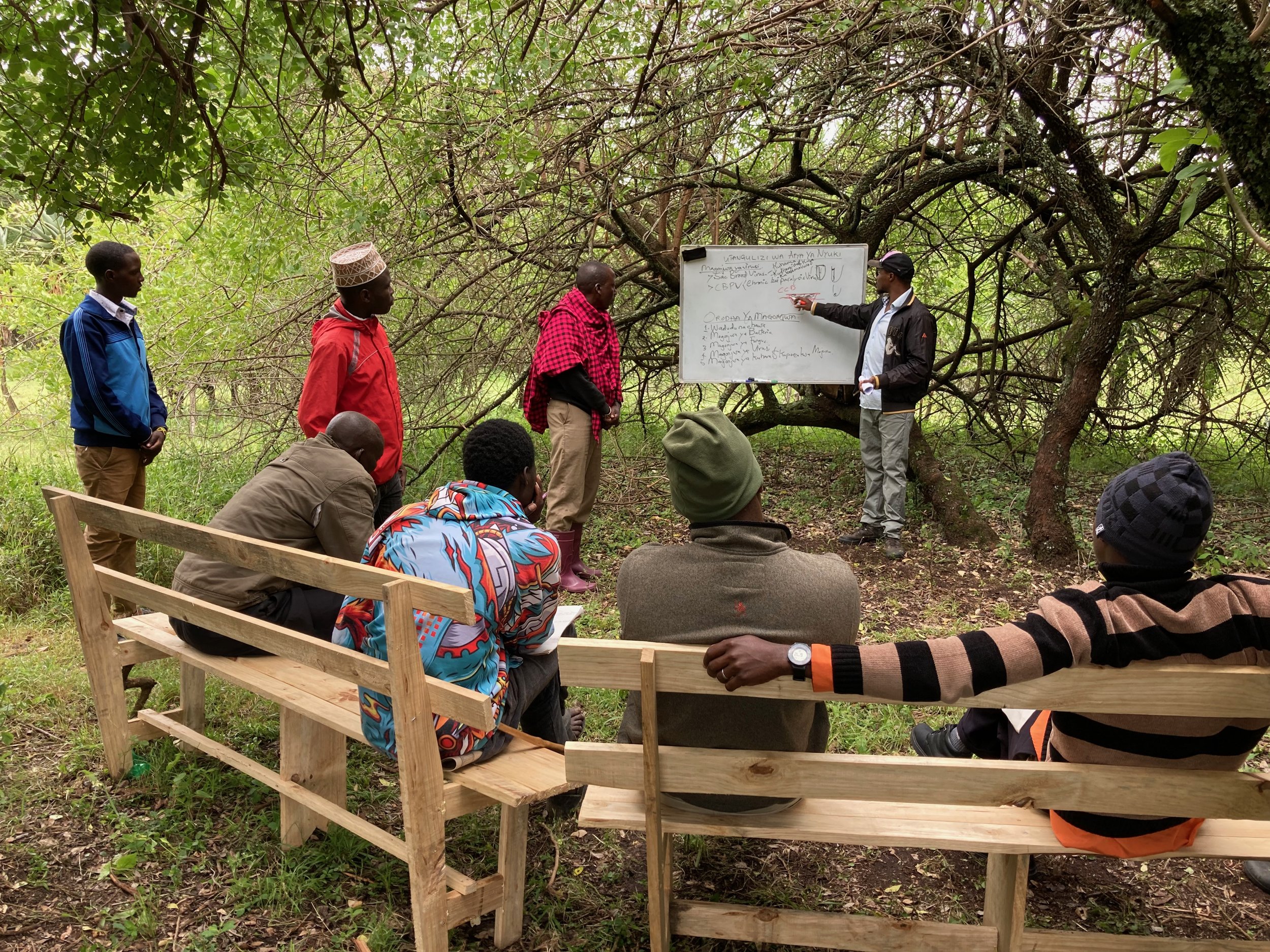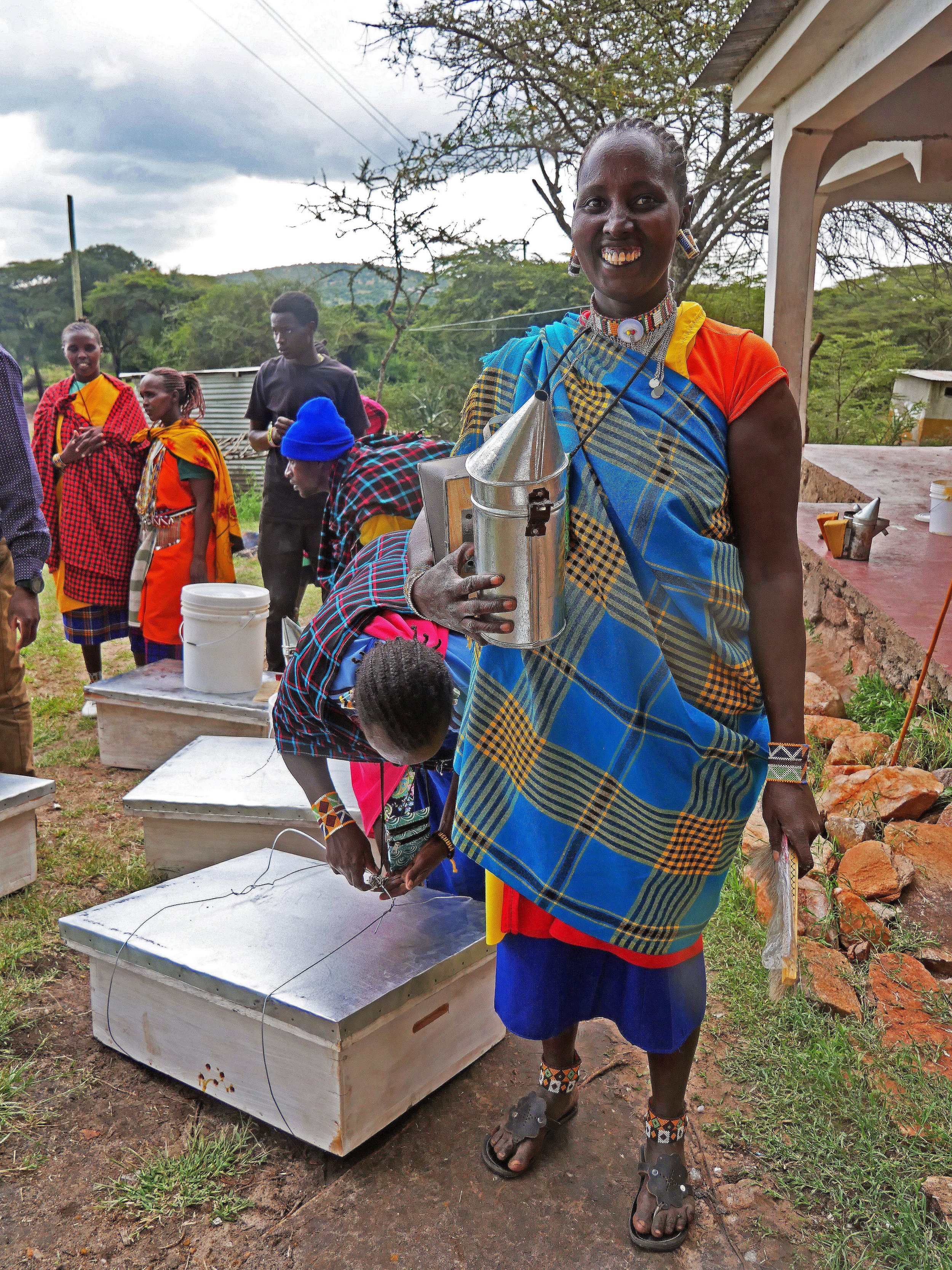Beekeeping Training Course in Ololosokwan Village
Beekeeping lends itself to the remote, wild environments of rural Tanzania. While job opportunities in small villages may be scarce, a beekeeper’s work yields honey, which can be traded, eaten, or sold for a profit. The goal of the Maasai Honey 10-day training course is to equip trainees with knowledge, practical skills, and equipment- so that they can begin their own at-home apiaries! Composed of both theoretical and hands on lessons, the beekeeping instructors cover topics such as the hive caste, honeybee health and diseases, types of apiaries, plus lessons on all of the necessary tools and equipment.
In July 2022 we completed our first two-week training in top-bar beekeeping. The course was taught in both Maa (the language of the Maasai) as well as Kiswahili. Participants were villagers of Ololosokwan who already had some beekeeping experience. Such beekeepers may hang hallowed “log hives” near their homes, but they had never before received formal beekeeping education.
Log hives are both hard to manage and destructive to the environment, plus they are difficult to re-use from year to year. However, top-bar hives can be opened and individual frames can be inspected, making colony management and honey harvesting much easier. These hives also last longer - allowing beekeepers to grow and develop their colonies over time.
The training course provides a comprehensive beekeeping foundation, covering topics ranging from apiary selection to honey harvesting and pressing. Trainees learn tips and tricks for dealing with natural predators, plus how to spot signs of colony disease. For practical sessions, students get suited up to inspect the hives, studying honeybee colonies up close and learning how to manage Tanzanian top bar hives.
Our next course will be an all women’s beekeeping training in Ololosokwan Village.
Watch the video below for a first-hand glimpse into the training!
BEEKEEPING TRAINING COURSE SCHEDULE
DAY 1: Monday: Introduction to Beekeeping
DAY 2: Tuesday: Apiary Selection
DAY 3: Wednesday: Introduction to Beekeeping Tools and Equipments
Day 4: Thursday: Types of Beehives
Day 5: Friday: Hive and Colony Stocking - Practical lesson
Day 6: Monday: Introduction to Honeybee Health
Day 7: Tuesday: Pest Management
Day 8: Wednesday: Beekeeping Laws and Regulations
Day 9: Thursday: Honeybee Products and Harvesting Honey - Practical lesson
Day 10: Friday: Processing Honeybee Products and Pressing Honey
